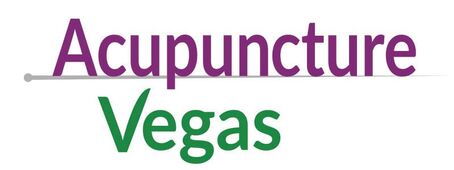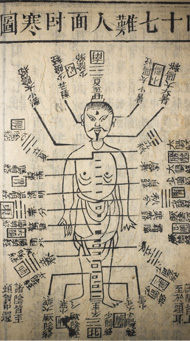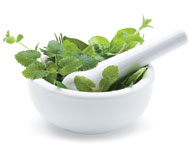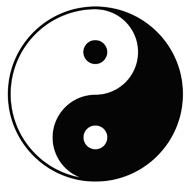Oriental MedicineOriental Medicine has it’s roots in ancient China, and has been evolving for over 3,000 years. Traditional Chinese Medicine (TCM) originates from ancient Taoist philosophy, which views a person as a total energetic system in which mind and body are unified. In this theory, each energy system in the body balances and affects the other systems. Chinese Medicine, therefore, takes a wholistic approach to health and well being, treating not just the disease, but the whole person in his or her entirety.
Chinese Medicine is applicable to any disorder, be it physical or emotional. As a preventative modality, Chinese Medicine is as an excellent system for the achievement of optimum health and well being. In Ancient China, the Chinese Medical doctor was paid as long as the patient remained well, but not when he or she was sick! Oriental Medicine includes a wide variety of natural healing modalities, including such practices as acupuncture, moxabustion, cupping, acupressure, massage (tui na),herbal remedies, nutritional therapies, qi gong and tai chi. Chinese Medicine is unique in the way that it views disease. Unlike Western Medicine, which diagnoses and treats specific diseases, Oriental Medicine looks for patterns. For instance, there may be two people who have the same disease, but the patterns that caused the disease in each person may be entirely different, so therefore the two patients with the same disease will require different types of treatments. On the other hand, there may be two patients with different diseases, but who both have the same underlying patterns (causes, signs and symptoms) so in this case, these two patients with seemingly different disease manifestations will actually will require similar treatments because their underlying patterns are the same. In this way, Traditional Chinese Medicine is applicable to each person on an individual basis, depending on his or her presenting symptoms and patterns. Oriental Medicine traditionally uses four methods to evaluate a patient’s condition: asking/interviewing, observing (in particular the tongue), hearing/smelling, and touching/palpating (especially reading the pulse). |
•• Articles ••
What is holistic medicine?
The word holistic means relating to or concerned with wholes or with complete systems rather than with the analysis of, treatment of, or dissection into parts. Therefore, holistic medicine is a form of healing which takes into account the “whole” person. Whereas Western medical doctors typically specialize in one particular body system or type of disease treatment, holistic medicine takes into account all functional aspects of the human and how they relate to each other. Holistic medicine looks to bring balance to body, mind, spirit, and emotions in the quest for optimal health and wellness.
Is Traditional Chinese Medicine holistic?
Traditional Chinese Medicine (also called Oriental Medicine) is a holistic medicine coming from Eastern tradition. It has a very long history, dating back over 3,000 years. Chinese Medicine looks at the entire physical, mental, and energetic aspects of the person in order to determine disease causes and treatment. To treat illness, Oriental Medicine uses only natural therapies, such as acupuncture and herbal medicine.
Acupuncture and herbal medicine is considered complementary and/or alternative medicine. Complementary and alternative medicine (CAM) is the term for medical products and practices that are not part of standard Western medical care. Alternative medicine refers to treatment methods that are used as an alternative to standard medical care. Complementary medicine means nonstandard treatments that are used in conjunction and simultaneously with standard medical treatment.
• Alternative medical therapies are safe
• Alternative medicine is effective, in that gives the body what is needed to heal itself
• Alternative medicine can be used alone, or as a complementary therapy while continuing to be treated with standard medicine
The word holistic means relating to or concerned with wholes or with complete systems rather than with the analysis of, treatment of, or dissection into parts. Therefore, holistic medicine is a form of healing which takes into account the “whole” person. Whereas Western medical doctors typically specialize in one particular body system or type of disease treatment, holistic medicine takes into account all functional aspects of the human and how they relate to each other. Holistic medicine looks to bring balance to body, mind, spirit, and emotions in the quest for optimal health and wellness.
Is Traditional Chinese Medicine holistic?
Traditional Chinese Medicine (also called Oriental Medicine) is a holistic medicine coming from Eastern tradition. It has a very long history, dating back over 3,000 years. Chinese Medicine looks at the entire physical, mental, and energetic aspects of the person in order to determine disease causes and treatment. To treat illness, Oriental Medicine uses only natural therapies, such as acupuncture and herbal medicine.
Acupuncture and herbal medicine is considered complementary and/or alternative medicine. Complementary and alternative medicine (CAM) is the term for medical products and practices that are not part of standard Western medical care. Alternative medicine refers to treatment methods that are used as an alternative to standard medical care. Complementary medicine means nonstandard treatments that are used in conjunction and simultaneously with standard medical treatment.
• Alternative medical therapies are safe
• Alternative medicine is effective, in that gives the body what is needed to heal itself
• Alternative medicine can be used alone, or as a complementary therapy while continuing to be treated with standard medicine




